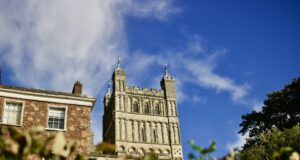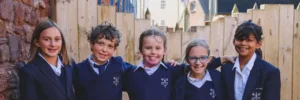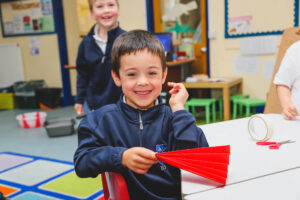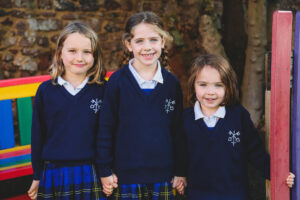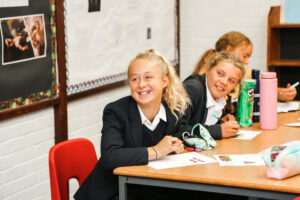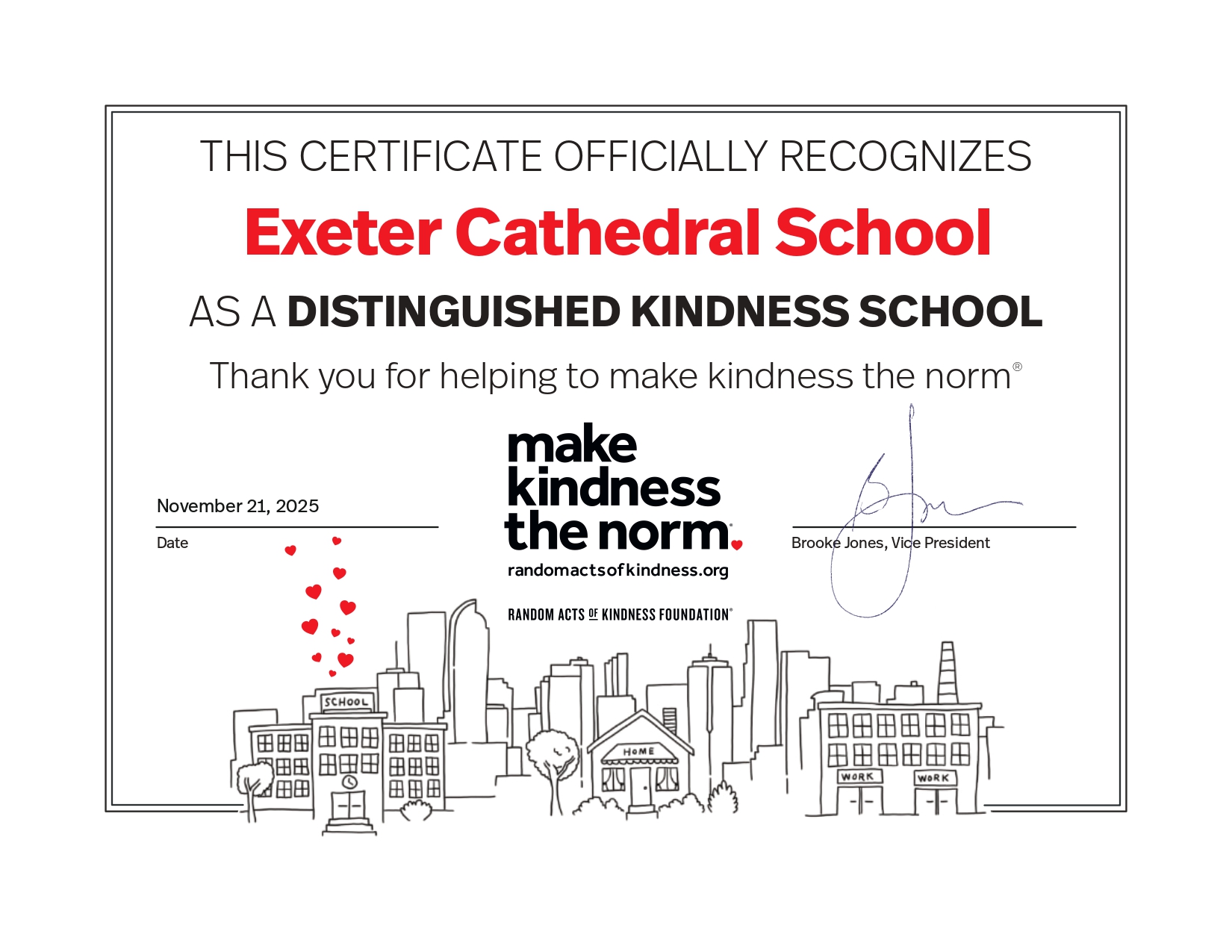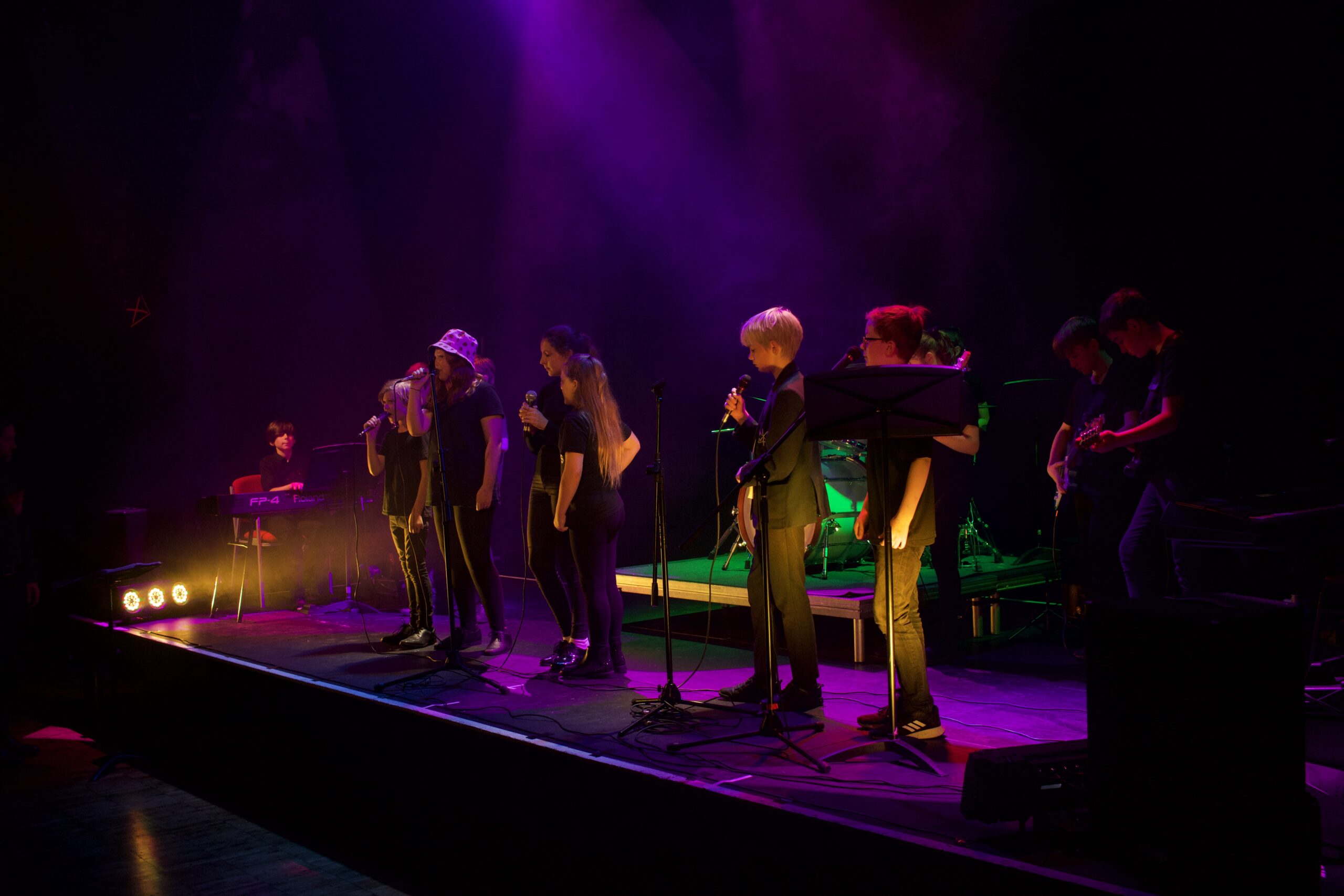Who doesn’t love a Royal wedding? Monarchist or no, the pageantry and sense of excitement that builds up across the county as Prince gets set to marry (soon-to-be) Princess lends us all an uplifting sense of celebration and a sort of bunting-based camaraderie. Actually, though, in Morning Worship this week (from the Cathedral Quire – what a tranquil and very special place in which to begin our day) the Prep School focused not on Prince Harry but on the newest English Prince of them all: Prince Louis. We wondered whether, being the youngest of three children, Louis would grow up with some different personality traits to his sister (a middle child) or his big brother (the oldest). Does our birth order, we wondered, affect our personalities, our behaviours and our character?
I did a bit of research on this topic, and was keen to find out whether the pupils (and staff) could recognise some of the proposed characteristic traits of first-borns, middle children, youngest, oldest and only children in themselves. High-brow science it was not, but an interesting study in self-awareness and social responsibility it certainly was. And all before period 1 on a Monday.
I got people to ‘fess up’ first – are you an only child? The oldest? Middle? The youngest? We didn’t get on to twins, but Sian and Natalie were in Chorister rehearsals, and Herbert and Henrietta agreed to play their oldest/youngest cards (Sacha and Freddie, Eddie and Henry, and William and Molly were busy getting their Pre-Prep day started in Hall House). Staff put their hands up, too, and I asked the School to listen to what my (fairly sketchy) research had to say about their supposed characteristic traits, and to see whether they could spot them in themselves.
The ‘only child’ team nodded in agreement as we went through what the research called their ‘good point’: they are, it seems, highly organised and conscientious, dependable, keen on facts and details, and comfortable with responsibility. They were less comfortable with their supposed ‘bad points’: coming across as demanding and unforgiving, not accepting criticism very well, and seeming very sensitive.
Those oldest children – clearly the most important category – enjoyed hearing that they (we) are natural leaders and high achievers, organised and competent, compliant caregivers, movers and shakers, and with a penchant for detail. Some of us winced a little at hearing that we: can be moody, can push people hard in our quest for high standards, and can be bossy and overly-conscientious. No comment.
Those pupils and staff falling into the ‘middle child’ category nodded as it was suggested that they are people-pleasers who dislike confrontation, that they are friendly and very good listeners, that they are skilled at seeing both sides of a problem and good negotiators. The nodding dried up a bit as the ‘bad points’ were read out: a danger of co-dependency, a reluctance to make decisions if they risk offending others, and a tendency to blame themselves when others fail.
And then it was the turn of the ‘youngest child’ people. They have strong people skills, it seems, and make friends very easily. They entertain others and make them feel at home, and they are extroverts (energised by the presence of other people). We also learned that they are generally not afraid to take risks. The flip side of the youngest child, this research suggested, is that they tend to get bored very quickly and have a short attention span. It also suggests that there is a strong fear of rejection, and that the readiness to ‘switch off’ can come across as self-centred.
Throughout the presentation of these thoughts, what was most fascinating was seeing the children taking great delight in hearing about their supposed ‘good points’. There were several air punches from those who learned pleasing things about themselves/their ‘type’, and plenty of wry smiles and much nodding as they inwardly acknowledged some of the ‘bad points’ that were read out. There was also a good deal of turning to one’s friends and pointing, saying ‘that is soooo you’. There was a good deal of self-awareness, and an awareness of others, in the Quire that morning: that’s a very good thing indeed.
So, I asked the School, if our birth order gives us personality traits, can we behave how we like and blame it on the fact that we are an only (etc) child? We agreed pretty quickly that we could not. I put it to the pupils that the combination of a heart, a conscience, and a brain is a powerful one: it means we can make decisions about what we say, how we behave, and the impact we have on others. We are, then, I suggested, responsible for our own behaviours, and whilst we may well have certain in-built or learned characteristics, the choice of how to act, what to say, and of how we make other people feel is – entirely – something that we are in control of. We have a personal responsibility to use our traits and our gifts well, and, collectively, a social responsibility to know about ourselves and about how what we choose to do and choose to say affects other people.
Appropriate self-awareness and an understanding of/empathy for our individual and collective/corporate impact on those around us is a ‘soft skill’ (yuk) that is becoming more and more important (and more and more appealing to employers) as interactions and communications shift to digital platforms, and it’s something that our strong pastoral ethos and our genuine knowledge of each of our pupils as individuals helps us to promote and develop. Our PSHE lessons and our Emotional Wellbeing programme helps, too. But above all it’s the daily interactions; the modelling of caring and thoughtful behaviour; the intrinsic sense of acceptance, love and compassion that is in the walls and in the blood; the ancient roots with a place of worship and stillness; the gently-Christian threads of love, tolerance, acceptance and compassion; and our existence as part of something greater and more timeless than ourselves which allows thoughtfulness, consideration, kindness, tolerance and awareness (of self and of others) to be such fundamental parts of the culture of our School.
